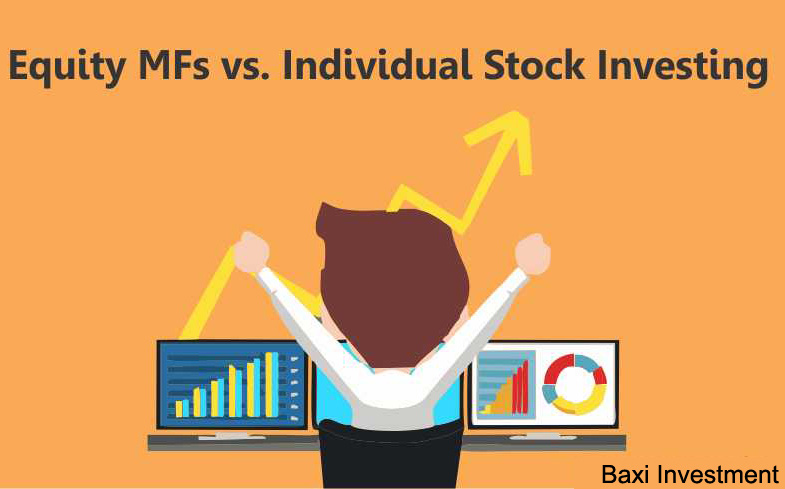
BJP led NDA is all set to form the next Government with a comfortable majority and Narendra Modi will have at least one more term as the Prime Minister. The Nifty after trading sideways in 2018, shot up 10% in the pre-election rally in anticipation of Modi win and after a bout of volatility during the last 2 phases of polling, reached its all time high after exit polls. The stage is set for a longer term secular bull trend in the stock market. For long term investors in India, this is a great time to invest in equity.
Long term secular bull market in India
Over the past 20 years, second term for incumbent Governments has resulted in strong returns for equity investors. NDA and UPA wins in 1999 and 2009 respectively saw the stock market surging in both instances – with Modi’s victory we can expect the same this time. Investors both foreign and domestic want stable Governments so that they have clarity on fiscal policy. The Modi Government in its previous term had initiated some important structural reforms in the economy like, GST implementation, Insolvency and Bankruptcy code, Real Estate Act, diesel price deregulation, opening more sectors to FDI etc. A stable NDA Government will ensure continuity of these reforms and also pave the way for other important structural reforms that will strengthen the Indian economy.
The Sensex and Nifty are within touching distance of 40,000 and 12,000 respectively. Both are important psychological levels and the market is set to scale newer highs in the future. While bullish sentiments sweeping through the market now will provide momentum to the leading indices, questions will be asked about over-heating valuations in the coming months; Nifty P/E ratio is now at the higher end of its historical range. Corporate earnings growth will have to sustain the near term rally. Corporate earnings growth has shown clear signs of revival over the past few quarters and should now show more robustness for the rally to sustain. Most fund managers that we have interviewed are bullish about robust earnings growth in the coming quarters.
Great investment opportunities in midcap and small cap
While the focus over the last few days has been on Sensex and Nifty because they make the headlines, a deeper look at the broader market reveals great investment opportunities. 2018 was a difficult year for midcap and small cap segments of the equity market. The Nifty Midcap 100 index fell 16%, while the Nifty Small Cap index fell 30%. Midcap and small cap equity mutual funds were among the worst performers in 2018.
However, the sharp decline in price has made midcap and small cap stocks attractive again. The valuation premium at which Nifty Midcap 100 was trading versus the Nifty has now disappeared. Some reports suggest that Nifty Midcap 100 is at a valuation discount in terms of forward P/E. The valuation premium, at which Nifty Small Cap 100 was trading versus the Nifty in 2017, in fact now has turned into valuation discount.
Both Nifty Midcap 100 and Small Cap 100 Index have risen around 9% from mid February levels, despite high volatility over the past 1 month. This clearly shows that investor confidence is returning in midcap and small cap stocks.Midcap stocks outperformed large cap stocks in the previous term of the Modi Government. Nifty Midcap 150 TRI gave 14.6% CAGR returns compared to Nifty 50 TRI’s 11.5% CAGR returns. A second term for Modi is great news for midcap and small cap stocks and mutual funds.
Many of the reforms initiated and implemented by the Modi Government benefited midcap and small cap stocks the most. One of the most important aspects of the reforms of the previous Government was that they are aimed at transforming the quality of our economic growth, e.g. tax simplification, bringing people into the formal economy, digitization, infrastructure etc. Most of these reforms are aimed at boosting domestic consumption and capital expenditure which will boost earnings of midcap and small cap companies. Some of these reforms take longer time to yield economic benefits, but we can expect to see the benefits of many structural reforms during the second term of the Modi Government. Retail investor sentiments in midcap and small cap mutual funds took a severe hit last year, but we think that this is a great time to invest in midcap and small cap mutual funds.
Conclusion
The last 5 year period was great for equity mutual fund investors. Across different market conditions, different diversified equity mutual fund categories generated on average 12 – 15% CAGR returns (source: Advisorkhoj MF Research), outperforming fixed income and gold by a huge margin. 2018 was difficult year for many mutual fund investors, but the trend over the last 3 months is encouraging and the election results today reinforced the positive trend. This is a good time to tactically increase your asset allocation to equity. However, as stated multiple times in our blog, you should keep your risk appetite in mind when investing and consult a financial advisor.
Consult us today,
Hardik Baxi
Baxi Investment
+91-7990290560

















